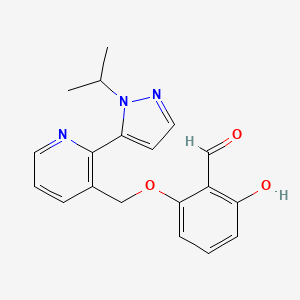
Ipsen Biopharmaceuticals, an affiliate of Ipsen , announced today that the United States Food and Drug Administration (FDA) has approved a new pre-filled syringe for Somatuline Depot (lanreotide). The syringe includes updated features, such as larger flanges, designed to help make it easier for healthcare providers to administer the injection.1 The indications remain the same as those for the previous pre-filled syringe and include the treatment of adult patients with unresectable, well- or moderately-differentiated, locally advanced or metastatic gastroenteropancreatic neuroendocrine tumors (GEP-NETs) to improve progression-free survival; treatment of adults with carcinoid syndrome; when used, it reduces the frequency of short-acting somatostatin analog rescue therapy; and the long-term treatment of patients with acromegaly who have had an inadequate response to surgery and/or radiotherapy, or for whom surgery and/or radiotherapy is not an option. Please see Important Safety Information below and accompanying full Prescribing Information.
“The conditions of GEP-NETs and acromegaly can be associated with a number of uncomfortable and unpleasant symptoms, and innovation aimed at improving the injection process is a step forward,” said Daphne Adelman, Clinical Nurse Specialist, Northwestern University, Chicago, and one of the authors of the study.
Ipsen conducted five separate but complementary studies in partnership with patients, their caregivers, nurses and other healthcare professionals to better understand the current use of the existing Somatuline® Depot pre-filled syringe and to evaluate ways to improve the features of the device.1 The result of this collaboration is a redesigned delivery system intended to make it easy to grip the syringe and administer the injection. The new syringe features a needle shield removal system, more stable plunger and thermoform tray that has recessed areas designed to help prevent accidental plunger depression. The built-in safety system, which may help to prevent needle stick injury by locking in place following the administration, has not been changed.
“We consistently look for opportunities to respond to the needs of the communities we serve, and this approval would not have been possible without the direct involvement of nurses and the patients with GEP-NETs and acromegaly whom they treat,” said Bradley Bailey, SVP, and Franchise Head Oncology/Endocrinology Business Unit at Ipsen. “We listened and collaborated to enhance the existing pre-filled syringe, making it sturdier for healthcare providers when administering treatment, with the intention of improving the injection process. We look forward to bringing this innovation to healthcare providers for their patients soon.”
The new pre-filled syringe is for deep subcutaneous injection and is intended for administration by a healthcare professional. Healthcare providers can expect to receive the new syringe during Q3 2019. The device is approved for use in the U.S., EU and additional ex-U.S. markets.


